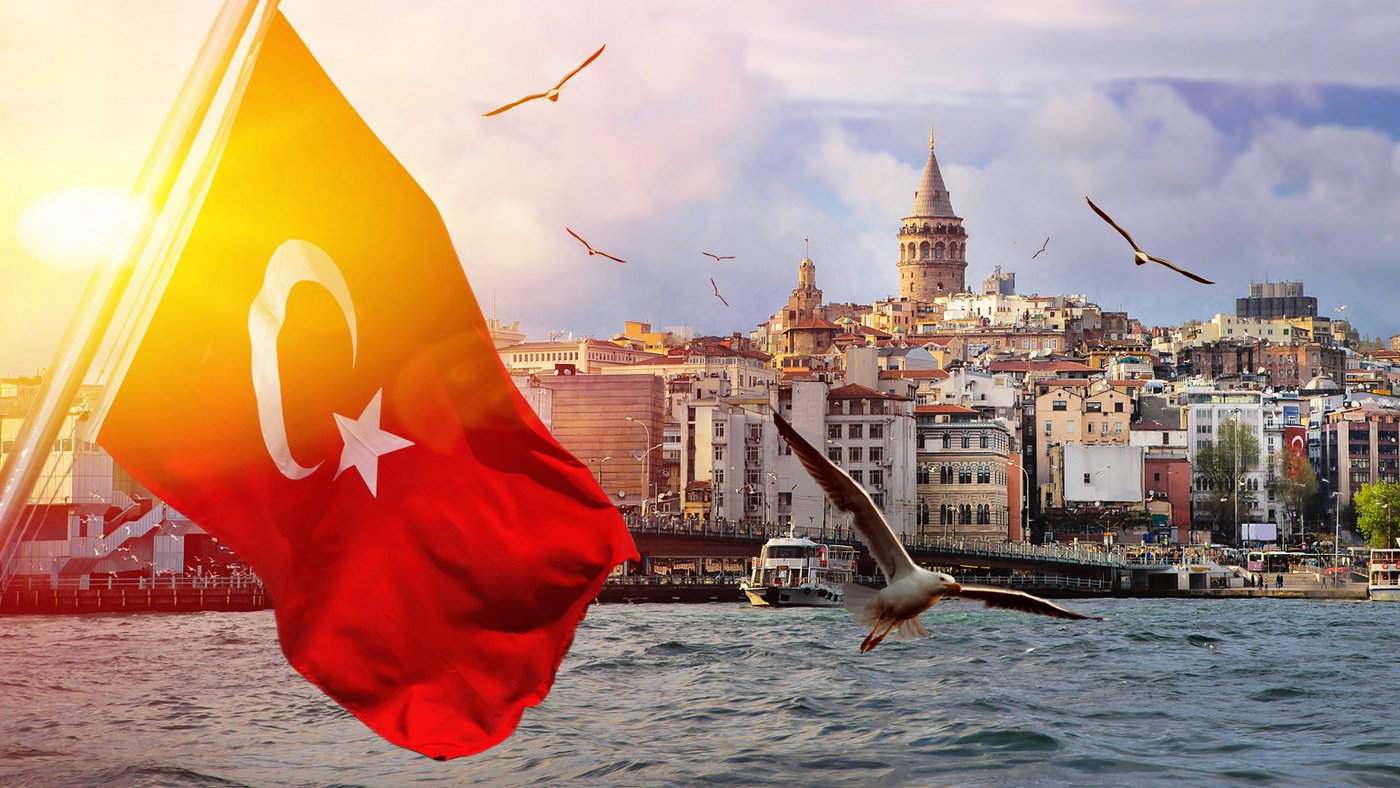
Turkey Travel Guide: Exploring the Crossroads of East and West
Welcome to Turkey — a country where ancient civilizations meet modern life, where East meets West, and every sunrise paints a new story across its vast landscapes. From the bustling bazaars of Istanbul to the fairy-tale chimneys of Cappadocia, from turquoise coastlines to snow-covered mountains, Turkey offers travelers a kaleidoscope of history, flavor, and natural beauty.
This Turkey Travel Guide reveals everything you need to know before visiting — from must-see destinations and cultural highlights to practical travel tips that make your journey seamless and unforgettable.
Quick Overview
- Continent: Europe & Asia
- Capital: Ankara
- Largest City: Istanbul
- Language: Turkish
- Currency: Turkish Lira (TRY)
- Best Time to Visit: April–June & September–October
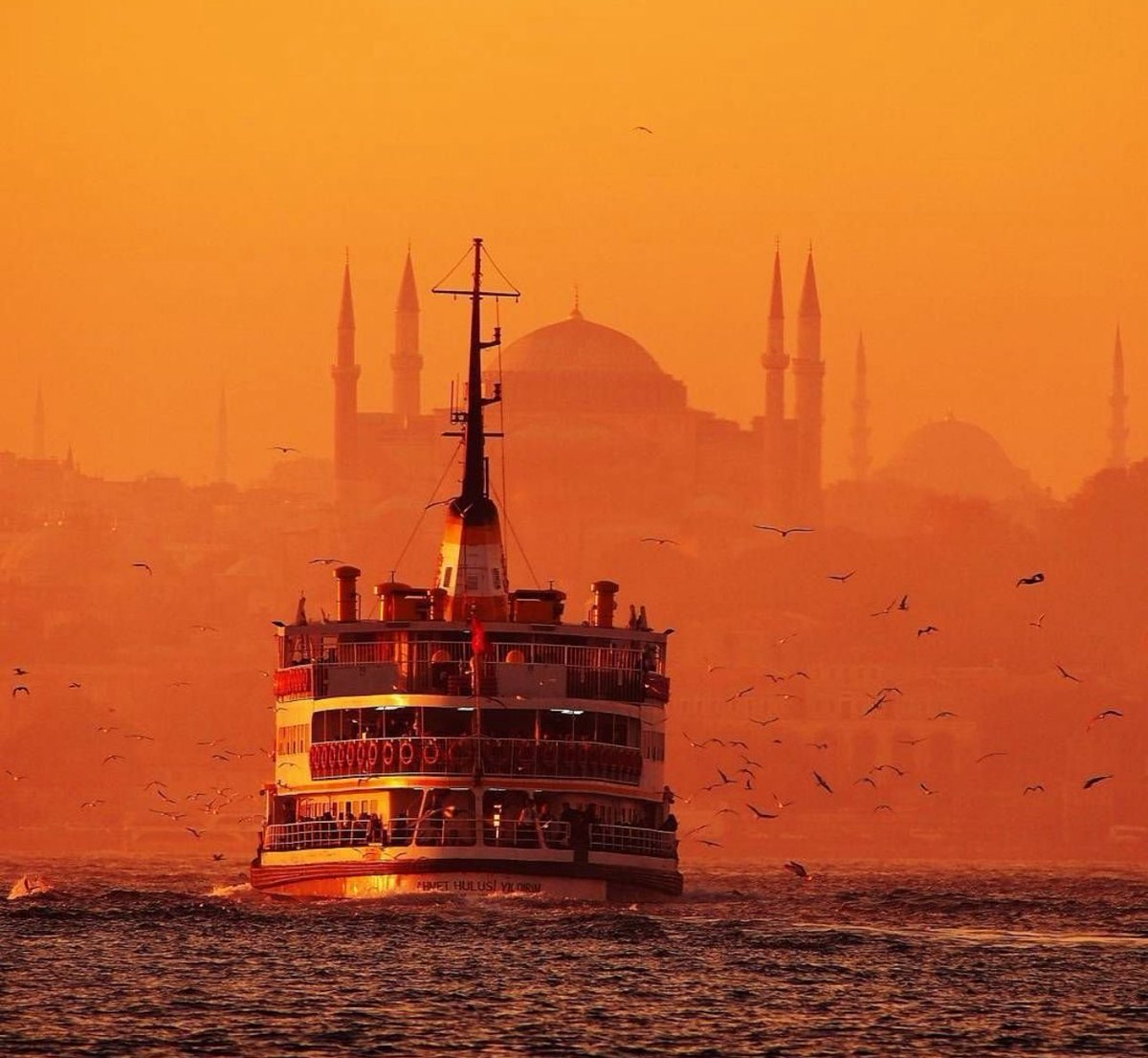
meet in harmony.
Turkey’s charm lies in its diversity. The same country that holds the ruins of Troy also hosts the lively streets of Izmir and the blue lagoons of Ölüdeniz. Every region feels like a different world — yet all share the same welcoming spirit and deep-rooted hospitality.
Istanbul – The City of Empires
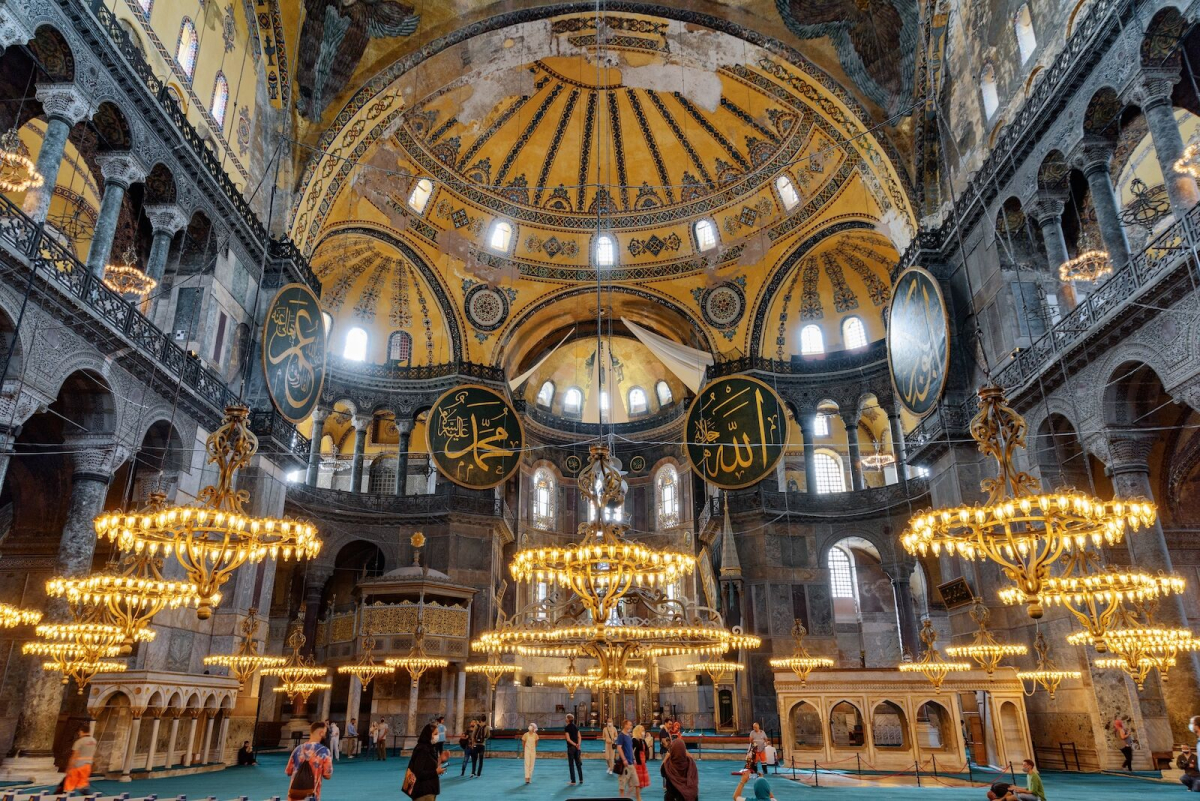
Byzantine architecture.
Istanbul is not just Turkey’s largest city — it’s an experience that spans two continents. Once known as Byzantium and Constantinople, it carries the legacies of empires in every stone. The Hagia Sophia, Blue Mosque, and Topkapi Palace form the historical heart of the city, while the Grand Bazaar buzzes with energy and color.
Take a ferry across the Bosphorus Strait to see the city’s skyline shimmer at sunset. Wander through Karaköy and Galata for street art, rooftop cafés, and views of the Galata Tower.
Tip: Visit during spring or autumn — when the weather is mild, and the city’s rhythm feels perfectly balanced between local life and exploration.
Cappadocia – Land of Fairy Chimneys

landscape at dawn.
Cappadocia feels like another planet. The region’s volcanic formations — known as “fairy chimneys” — create a landscape unlike anywhere else on Earth. Sunrise hot air balloon rides reveal valleys painted in soft hues of pink and gold.
Explore underground cities like Derinkuyu and ancient cave churches carved into stone. At night, stay in a cave hotel and gaze at the Milky Way above this dreamlike region.
Local Insight: Visit in April or October for clear skies, fewer crowds, and perfect ballooning conditions.
Antalya – The Turkish Riviera
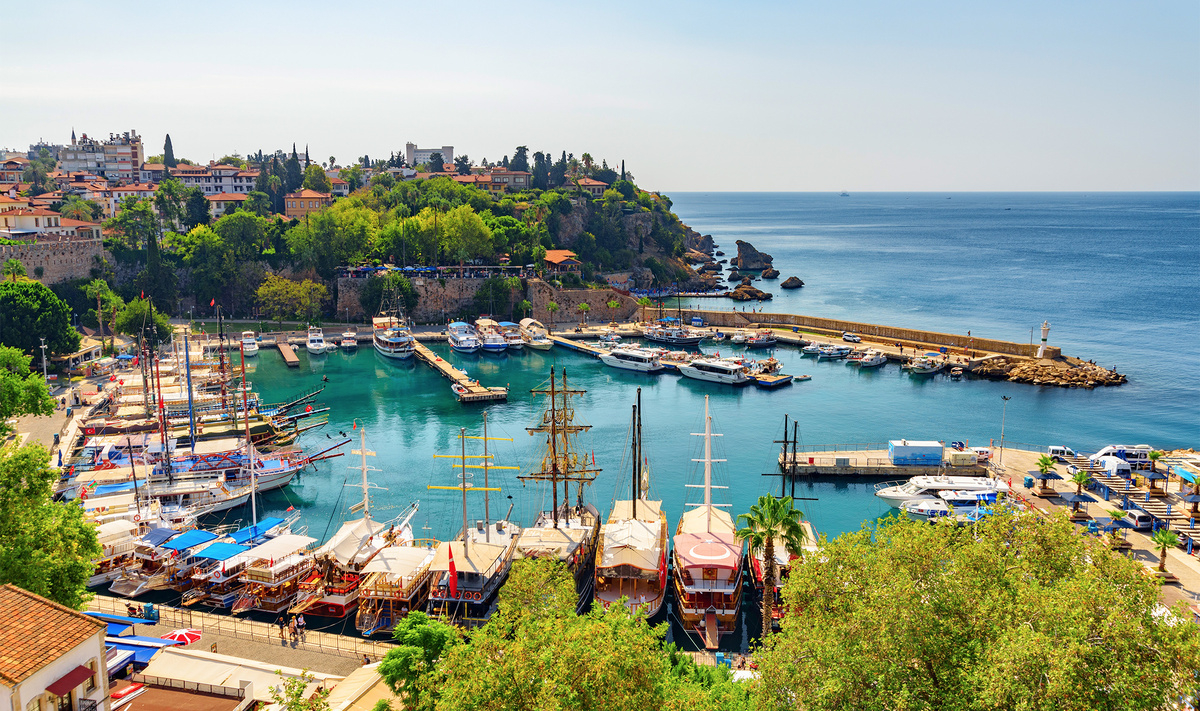
the jewel of the Mediterranean coast.
With turquoise waters, golden beaches, and Roman ruins, Antalya is Turkey’s coastal paradise. The city’s Kaleiçi district combines Ottoman charm with Mediterranean elegance, while the nearby Düden Waterfalls tumble dramatically into the sea.
Beyond the city, discover ancient wonders like Perge and Aspendos — some of the best-preserved Greco-Roman sites in the world. For beach lovers, Lara Beach and Konyaaltı offer endless sun and sea.
Pro Tip: Antalya is ideal from May to October, with direct flights from most European cities and excellent seaside resorts.
Izmir & Ephesus – A Glimpse into Ancient Greece
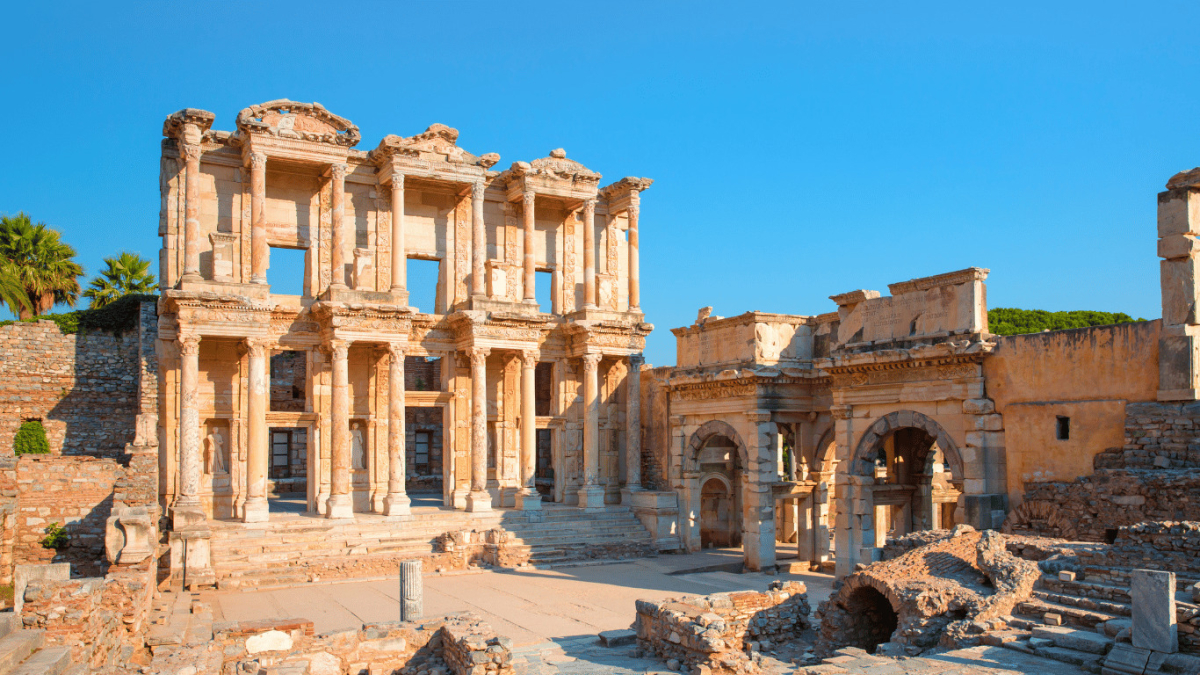
greatest cities of the ancient world.
Izmir is Turkey’s third-largest city and one of its most progressive. Its seaside promenade, vibrant arts scene, and warm hospitality make it a joy to explore. But the true star of this region lies nearby — the ancient city of Ephesus.
Once a thriving Greek and Roman metropolis, Ephesus is home to the stunning Library of Celsus, the Great Theater, and remnants of the Temple of Artemis — one of the Seven Wonders of the Ancient World.
Insider Experience: Visit early in the morning to walk the marble streets before the tour groups arrive.
Pamukkale – The Cotton Castle
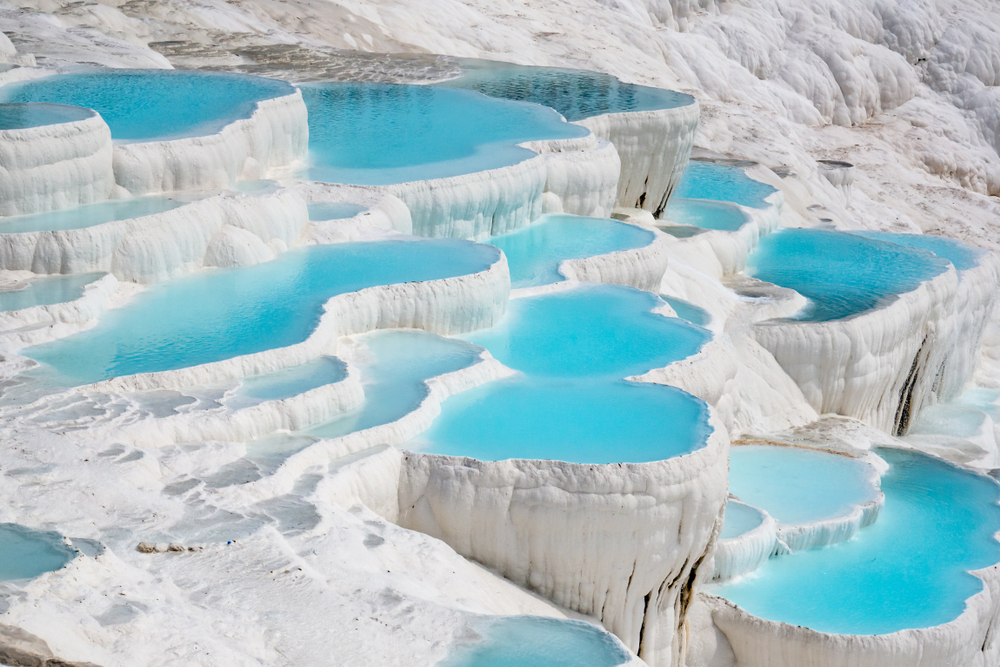
Turkey’s natural wonders.
Pamukkale (meaning “cotton castle” in Turkish) is a geological marvel of white travertine terraces filled with thermal waters. The site has been a spa destination since Roman times, and the ruins of Hierapolis sit right above the terraces.
Walk barefoot through warm pools and enjoy sunset views that make the limestone glow golden. It’s one of Turkey’s most photographed natural sites — and for good reason.
Other Must-See Destinations
- Ankara: The modern capital, home to the Anıtkabir (Atatürk Mausoleum).
- Fethiye & Ölüdeniz: Famous for paragliding, blue lagoons, and breathtaking coastlines.
- Trabzon: Lush Black Sea scenery and the cliffside Sumela Monastery.
- Mount Ararat: Mythical peak associated with Noah’s Ark.
Food & Culture Highlights
Turkish cuisine is a celebration of flavor and tradition. Savor kebabs, mezes, and baklava with strong Turkish tea or coffee. In every region, food reflects the local landscape — seafood in the Aegean, lamb in Anatolia, and rich stews in the east.
Cultural tip: Always accept tea when offered — it’s more than a drink; it’s a gesture of friendship.
When to Visit Turkey
Spring (April–June) and autumn (September–October) are the best seasons for mild weather and fewer crowds. Summer brings heat along the coasts (30°C–38°C), perfect for beach holidays. Winter transforms Cappadocia and eastern cities into serene snowy escapes.
Travel Tips
- Buy a Museum Pass Turkey for discounted access to major historical sites.
- Carry some cash — smaller shops may not accept cards.
- Dress modestly when visiting mosques and religious landmarks.
- Learn a few Turkish words; locals appreciate the effort (“Teşekkürler” means thank you).
Conclusion
Turkey is a journey through time and culture — where ancient ruins meet modern skylines, and warm smiles greet you at every corner. Whether you’re chasing sunsets on the Aegean coast, flying above Cappadocia’s valleys, or wandering Istanbul’s timeless streets, you’ll discover that Turkey isn’t just a destination — it’s an emotion.
